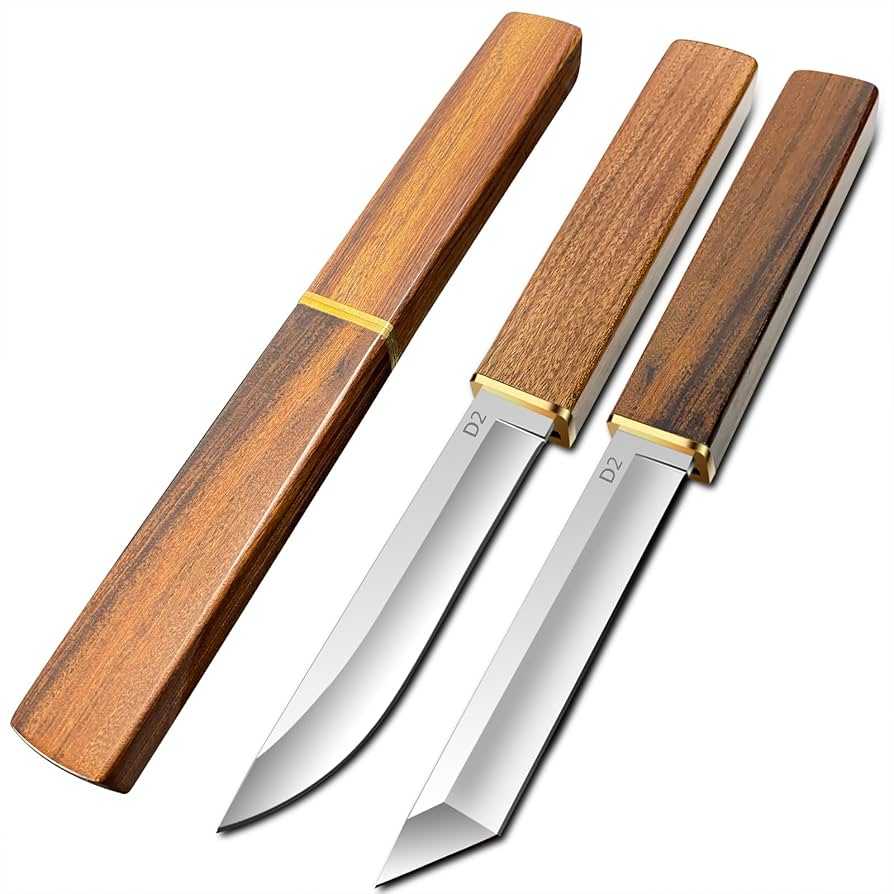If you drop a knife in the kitchen, stay calm and carefully pick it up, ensuring the blade is facing away from you. Always take your time to avoid accidental cuts or injuries. First, alert anyone nearby, and then grip the handle firmly to lift it securely from the floor, inspecting for any damage or blood if used recently.
Dropping a knife can happen in seconds, but knowing how to handle it safely can prevent injuries. Quickly assessing the situation, carefully picking it up, and disinfecting the area will keep everyone safe. If necessary, seek medical assistance for any cuts or wounds.
Dropping a knife in the kitchen can be startling and dangerous, but with quick thinking and proper precautions, you can manage the situation safely. This article guides you through the essential steps to take immediately after such an incident, ensuring safety for yourself and others around you. Dropping a knife might seem trivial, but it’s important to handle it correctly to avoid injuries or accidents.
What Should You Do If You Drop a Knife in the Kitchen
Stay Calm and Assess the Situation
Dropping a knife can be startling, but it’s important to stay calm. Take a deep breath to avoid panicking, which can lead to rushing and accidental injury. Carefully look around to see where the knife landed, so you can plan your next move safely.
Ensure Your Safety First
Before doing anything else, make sure the area is safe. Stop what you’re doing and alert others nearby. Remember, a fallen knife can be hidden under a pile of items or dirt, so proceed with caution.
Clear the Area of People
If there are children or pets in the kitchen, keep them away from the area immediately. A dropped knife poses a risk to anyone nearby, especially if it is sharp or in a hard-to-see spot.
Wear Protective Gear if Necessary
If you need to retrieve the knife, consider wearing thick gloves or using tongs. This added protection reduces the risk of cutting yourself on the blade or touching any broken parts.
Locate the Knife Carefully
Look for the knife with steady, cautious movements. Use a flashlight if it’s dark, and watch out for sharp edges or broken pieces. Do not rush to pick it up to avoid slipping or stabbing yourself.
Use Proper Tools to Pick Up the Knife
Gather a pair of thick gloves or a cloth to grip the handle securely. For safety, avoid picking up the knife with bare hands unless you are confident it’s not broken. Use tongs if needed for extra control.
Remove the Knife Safely
Lift the knife from the floor or counter with slow, deliberate movements. Hold it by the handle and avoid touching the blade directly. Place it on a stable surface where it won’t fall again or cause injury.
Check for Damage or Broken Pieces
Inspect the knife for any chips or cracks, especially if it’s a ceramic or fragile blade. Damaged knives can be unsafe to use and should be replaced or repaired.
Clean the Area Thoroughly
Once the knife is removed, clean the area carefully. Use a broom and dustpan for visible shards and sanitize the space to prevent injuries or contamination. Ensure no small pieces are left behind.
Dispose of Broken or Damaged Knives Properly
If the knife is chipped or broken, do not try to repair it yourself. Wrap the broken parts securely in thick paper or plastic before discarding in a sturdy trash bin. Consider replacing damaged knives to maintain safety.
Prevent Future Incidents
Organize your kitchen to minimize the risk of dropping knives. Use dedicated knife holders, secure storage drawers, or magnetic strips. Always handle knives with care and avoid rushing during food prep.
Proper Knife Handling Tips
- Keep blades sharp, as dull knives are more likely to slip.
- Cut on stable, non-slip surfaces.
- Hold the handle firmly and avoid multitasking while using a knife.
- Store knives in designated areas out of children’s reach.
What to Do if Someone Gets Cut
If someone is cut while trying to pick up a dropped knife, immediately apply pressure to stop bleeding. Rinse the wound with clean water, and cover it with a sterile bandage. Seek medical attention if the cut is deep or bleeding won’t stop.
Emergency Situations and When to Call for Help
In case of serious injury or if a large piece of the blade remains embedded in the body, call emergency services immediately. Do not attempt to remove deeply embedded objects yourself.
Summary of Safety Tips
Here’s a quick overview of what to keep in mind:
- Stay calm and assess the situation carefully.
- Keep pets and children away from the area.
- Wear protective gloves or use tools when retrieving the knife.
- Pick up the knife slowly and carefully.
- Inspect for damage before continuing to use the knife.
- Clean up all shards thoroughly to prevent injuries.
- Store knives properly to avoid future accidents.
Additional Safety Measures to Adopt
Consider using safety equipment such as cut-resistant gloves or installing safety covers on blades. Regularly check your knives for damage and replace older or chipped tools promptly. Good organization and cautious handling can make cooking safer for everyone.
Related Topics for Safer Cooking
Explore tips on maintaining kitchen cleanliness, selecting the right knives, and organizing your storage space to reduce risks.
The key to handling a dropped knife safely is to stay calm, carefully retrieve it, and take preventive steps to avoid similar accidents in the future. Acting cautiously helps protect you and everyone else in the kitchen from potential injuries.
Secret Tip To Chef's Knives…
Frequently Asked Questions
How should you safely remove a dropped knife from the floor?
First, approach the knife carefully to avoid cutting yourself. Use a broom and dustpan or a pair of tongs to pick up the blade without touching it directly. Place it on a sturdy surface or a thick towel to prevent further hazards. Always keep your hands away from the blade’s edge and wear gloves if necessary to protect your skin.
What precautions should you take immediately after the knife falls?
Ensure that everyone in the kitchen stays clear of the area to avoid accidental injuries. Check for any shards or broken parts of the knife and clear them away carefully. Turn on the kitchen lights if needed, so you can see the entire area clearly. Maintain focus and proceed with caution to prevent cuts or accidents.
What steps can you follow to clean up a knife that has fallen but is still on the floor?
Begin by visually inspecting the knife to determine its position and condition. Use hand protection like thick gloves to carefully lift or slide the knife onto a cloth or paper towel. If the blade is damaged or broken, dispose of it safely in a puncture-proof container. Clean the surrounding area with a damp cloth to remove any blood or residue, then sanitize the surface thoroughly.
How can you prevent knives from falling in the kitchen?
Always store knives in secured drawers with child-proof locks or in dedicated knife blocks. Keep countertops clear of clutter to reduce the chance of accidentally knocking a knife off. Use magnetic strips or knife guards when storing knives to minimize the risk of slipping or falling. Handle knives with care and always place them down gently on stable surfaces.
What should you do if you or someone else gets cut by a fallen knife?
Immediately apply firm pressure to the cut with a clean cloth or sterile bandage to stop the bleeding. Elevate the injured area if possible, to reduce blood flow. If the cut is deep or the bleeding doesn’t stop after several minutes, seek medical attention promptly. Avoid touching the wound with unclean hands and monitor for signs of infection or worsening symptoms.
Final Thoughts
If you drop a knife in the kitchen, remain calm and avoid rushing. Carefully step back to prevent stepping on the blade or causing further accidents. Pick up the knife by the handle, avoiding the blade to prevent cuts.
Always check the floor for any sharp pieces before continuing with your work. Keep a first aid kit nearby in case of minor injuries.
What should you do if you drop a knife in the kitchen? Focus on safety first and handle the situation with caution to prevent injuries.
As an Amazon Associate, We earn from qualifying purchases. When you purchase a product through Amazon links on kitchenadvising.com, we may earn a small commission at no extra cost to you. This helps support the site and keep our content free.


